Christopher Potter PhD
Professor of Neuroscience
Co-Director of the Neuroscience Training Program
Professor of Neuroscience
Co-Director of the Neuroscience Training Program

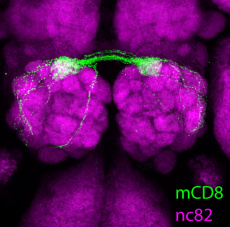 Olfactory receptor neurons innervating the fly antennal lobe.
Olfactory receptor neurons innervating the fly antennal lobe.
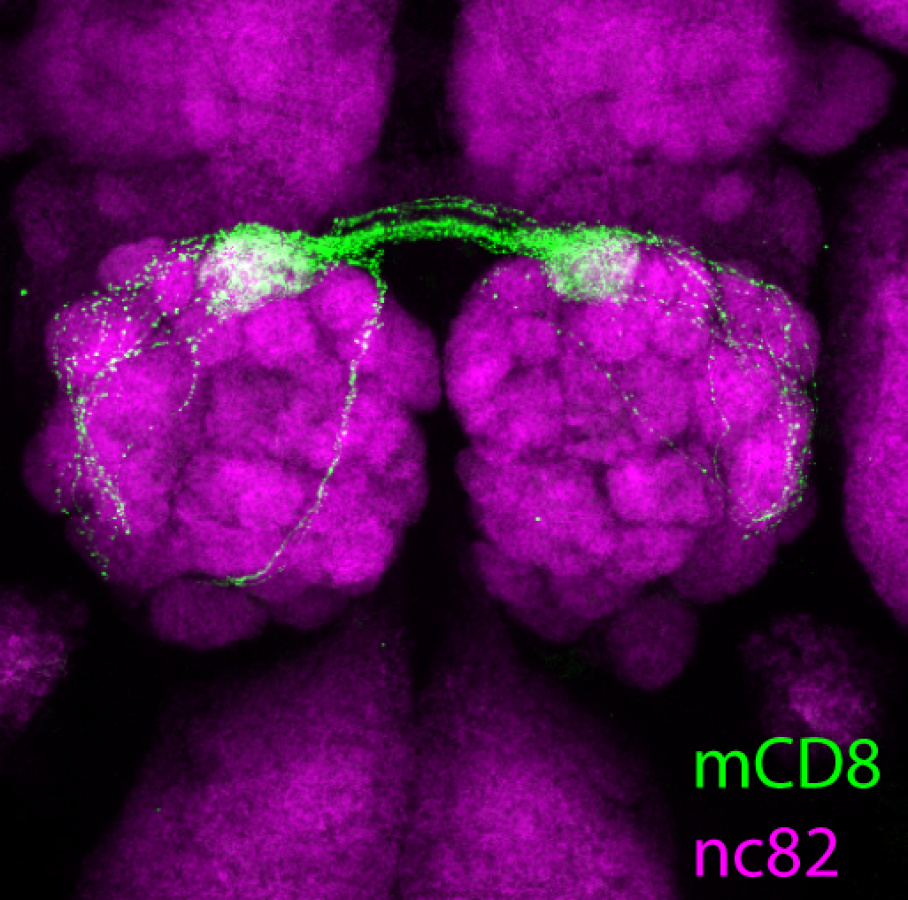
Or7a olfactory neurons targeting a single glomerulus. Or7a receptors function as pheromone detectors for 9-tricosene, and mediate aggregation and egg-laying decisions. Lin, et al, eLife, 2015.
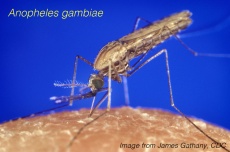 Anopheles mosquito bloodfeeding on a human hand.
Anopheles mosquito bloodfeeding on a human hand.
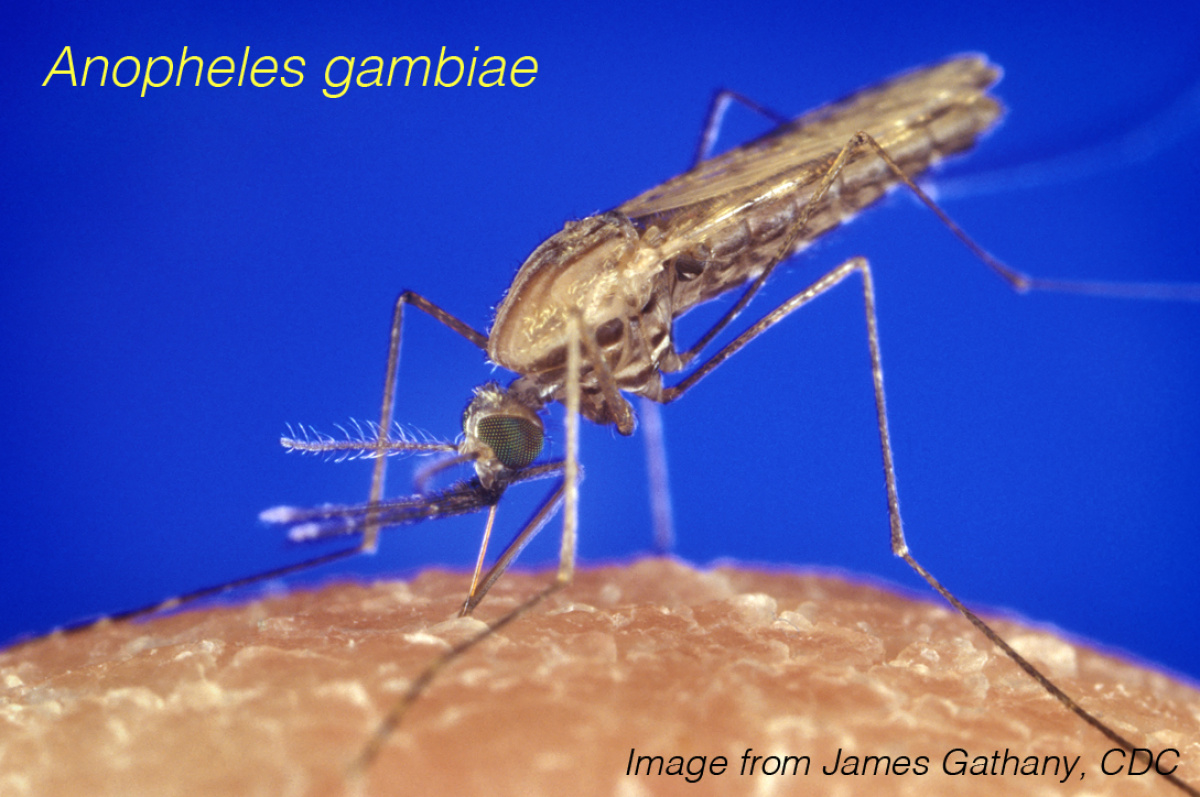
Anopheles gambiae mosquitoes use their sense of smell to find a human host. Our lab is investigating the mosquito olfactory system, and how mosquitoes distinguish humans from other animals.
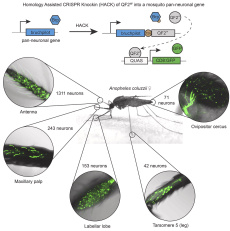 Neurogenetic labelling of mosquito neurons
Neurogenetic labelling of mosquito neurons
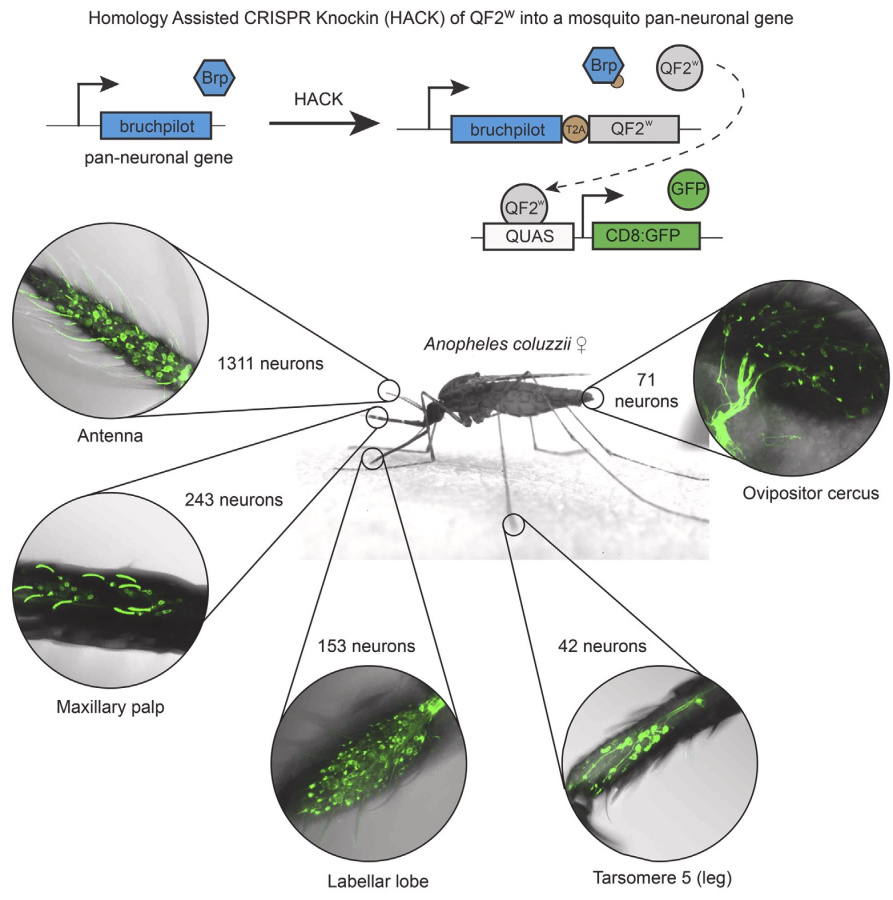
The Q-binary system of expression was used to label all neurons in the malaria mosquito. This highlights the many sensory neurons responsible for mosquito behaviors.
Insect Olfaction: Molecules, Neurons, and Behavior
The current research focus of my laboratory is investigating the olfactory system of Anopheles mosquitoes.
We have developed new strains of Anopheles mosquitoes, utilizing the Q-system we originally developed for use in Drosophila, to explore how living Anopheles mosquitoes respond to their olfactory environment. Current efforts are focused on exploring how insect repellents affect a mosquito’s sense of smell, from the neurons that are activated, to the receptors required, to the behaviors that are elicited. Other projects include (but are not limited to): investigating the dynamic regulation of mosquito odorant receptors, generating and characterizing knock-ins and mutants of mosquito olfactory receptors, and exploring biting behaviors.
We are always looking for motivated graduate students, so if any of the above sounds interesting, email me to learn more about the lab. Or visit our lab webpage.
Keywords: Mosquito olfaction, Anopheles olfaction, Insect olfaction, Q-system, QF2, Neurogenetic, Mosquito olfactory system